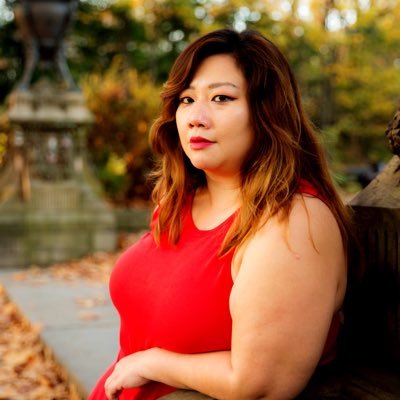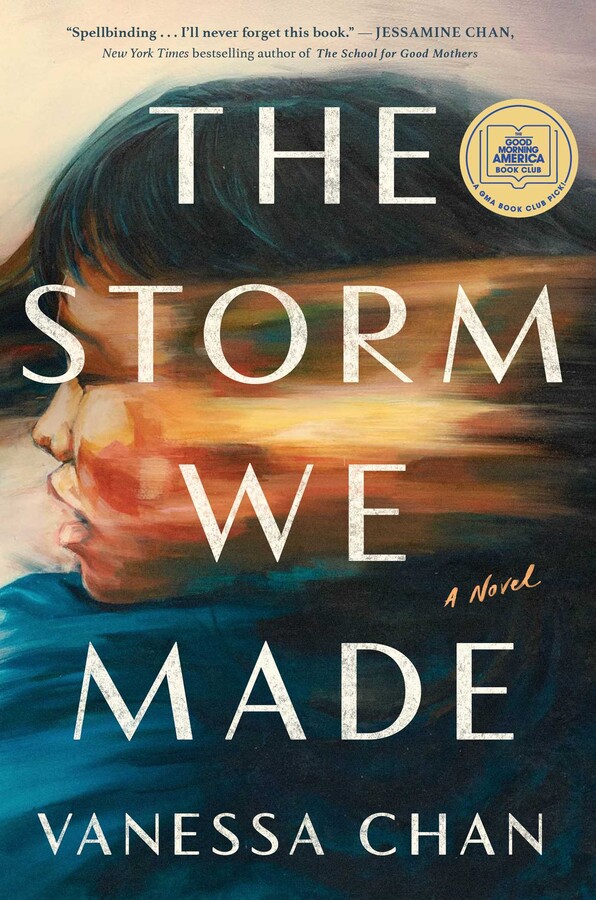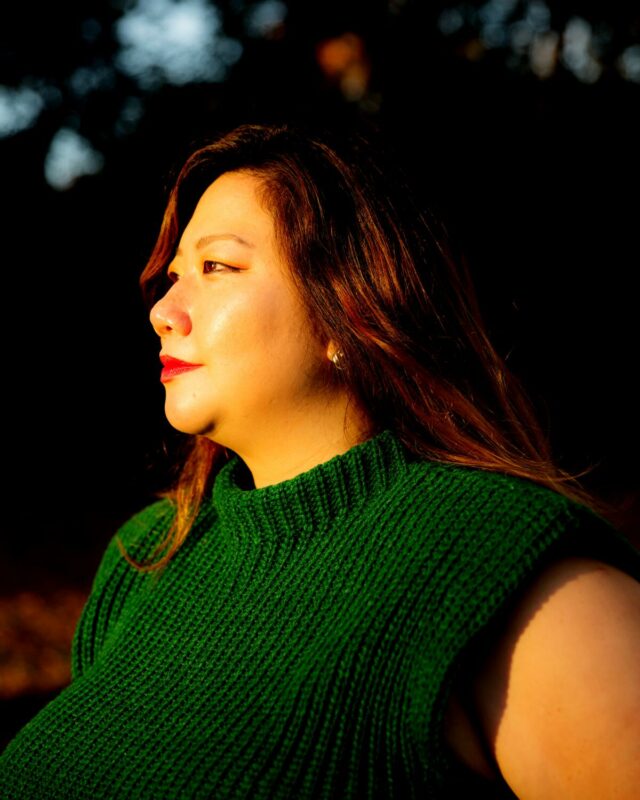

Vanessa Chan
Bestselling Novelist
Former Technology Executive

Readings &
Lecture Topics
- An Evening with Vanessa Chan
Biography
“Chan writes her characters with a precision that neither flinches from the brutality of war nor ignores the humanity within.” —Elle Magazine
“Chan shows us, with clarity and care, how the truest mirror comes from the intimacy of human connection.” —New York Times Book Review
“Chan tests the bounds of familial bonds, political sacrifice, and human resilience.” —Oprah Daily
Vanessa Chan is the author of The Storm We Made (Marysue Rucci Books/Simon & Schuster, 2024). An international bestseller, Good Morning America Book Club Pick, BBC Radio 2 Book Club pick, and NYT Editors Choice, the novel is about the unlikeliest of spies; a discontent mother and wife in 1930s British Malaya who, in becoming a spy for the Japanese, unwittingly ushers in the most violent war her country has ever seen. The Storm We Made will be published in more than twenty languages/regions worldwide.
Of Chan’s debut, the New York Times Book Review said: “The Storm We Made kicks up a weather system of epic proportions, ranging from military terror during World War II to domestic warmth. The book’s greatest power: It makes space for complexity without relinquishing the grip of a good story. Chan reveals how war is experienced in bodies and hearts, breaking down the morale of those who remain. This is a novel concerned with power—how it’s given and taken, whom we must align with to get close to it—and the consuming desire for more. But simmering beneath all of this is the will to dream—for the self, the family and the nation.” Her other work has been published in Vogue, Esquire, and more.
Chan grew up in Petaling Jaya, a city outside Kuala Lumpur, Malaysia’s capital. She often jokes that she comes from a lineage of exaggerating storytellers – her family is made up of smugglers, ad men, and many, many gossips. She arrived in the US at age 19 to attend university, with a single suitcase and $50 in her pocket. Graduating directly into a financial crisis, she worked any job that would take her on, and finally ended up as the crisis and financial communications director at Meta (formerly Facebook). In an ironic twist of fate, it was a leadership course designed to funnel her into even more senior positions at Facebook that made her decide to leave and pursue a life in the literary arts, where she completed and sold her first two books in two years. Chan is now based mostly in Brooklyn, where she has the great fortune to be writing full-time.
Short Bio
Vanessa Chan is the Malaysian author of the internationally bestselling novel The Storm We Made, a Good Morning America Book Club Pick, BBC Radio 2 Book Club pick, New York Times Editors’ Choice, and named best book of the year by NPR, Amazon, Elle, Goodreads, and more — about the unlikeliest of spies — a discontent mother and wife in 1930s British Malaya who, in becoming a spy for the Japanese, unwittingly ushers in the most violent war her country has ever seen. The Storm We Made has been translated into more than twenty languages worldwide. Her other work has been published in Vogue, Esquire, and more. She grew up in Malaysia and is now based mostly in Brooklyn.
Visit Author WebsiteVideos
Publications
The Ugliest Babies in the World
Short Story, 2025/6
The Ugliest Babies in the World is a story collection about feral girls in post-colonial Malaysia trying to solve the mysteries of their bloodlines. Full description forthcoming.
The Storm We Made
Novel, 2024
Malaya, 1945. Cecily Alcantara’s family is in terrible danger: her fifteen-year-old son, Abel, has disappeared, and her youngest daughter, Jasmin, is confined in a basement to prevent being pressed into service at the comfort stations. Her eldest daughter Jujube, who works at a tea house frequented by drunk Japanese soldiers, becomes angrier by the day.
Cecily knows two things: that this is all her fault; and that her family must never learn the truth.
A decade prior, Cecily had been desperate to be more than a housewife to a low-level bureaucrat in British-colonized Malaya. A chance meeting with the charismatic General Fujiwara lured her into a life of espionage, pursuing dreams of an “Asia for Asians.” Instead, Cecily helped usher in an even more brutal occupation by the Japanese. Ten years later as the war reaches its apex, her actions have caught up with her. Now her family is on the brink of destruction—and she will do anything to save them.
Spanning years of pain and triumph, told from the perspectives of four unforgettable characters, The Storm We Made is a dazzling saga about the horrors of war; the fraught relationships between the colonized and their oppressors, and the ambiguity of right and wrong when survival is at stake.
Articles & Audio
Read What’s In Print
• Review: The Storm We Made by Vanessa Chan – The Washington Post
• In This Debut Novel, Power Plays and Contradictions Abound – New York Times
• Vanessa Chan, The PEN Ten Interview – PEN America
• 18 New Books Coming in January – New York Times
Listen to Audio
• Late Night Lit: Vanessa Chan – Late Night with Seth Meyers Podcast
• In The Storm We Made, the horrors of war are the main character – NPR
• In Conversation with Mitzi Rapkin on the First Draft Podcast – LitHub
• In The Storm We Made, A Malayan Housewife Becomes a Spy During WWII – Electric Literature
• Zoe chats to debut author Vanessa Chan about her brilliant new novel – The Radio 2 Book Club
• ‘GMA’ January 2024 Book Club pick: The Storm We Made – ABC News
Selected Writings
The Storm We Made (an excerpt)
Bintang, Kuala Lumpur
February 1945
Japanese-occupied Malaya
Teenage boys had begun to disappear.
The first boy Cecily heard of was one of the Chin brothers, the middle of five hulking boys with narrow foreheads and broad shoulders—they were Boon Hock, Boon Lam, Boon Khong, Boon Hee, and Boon Wai, but their mother called them all Ah Boon, and it was up to the boys to know which one she was calling for. Throughout British rule, the Chin boys were known for being rich and cruel. It was common to see them crowding in a circle behind the Chins’ gaudy brown-and-gold house. They’d be standing over a servant, one of the boys with a switch in his hand and all the boys with glints of excitement in their eyes as the switch made contact with the servant’s skin. When the Japanese arrived before Christmas 1941, the boys were defiant: they glared at the patrolling Kenpeitai soldiers, spat at the ones who chose to approach. It was the middle boy, Boon Khong, who disappeared, just vanished one day as though he had never existed. Just like that, the five Chin brothers were four.
Cecily’s neighbors wondered what had happened to the boy. Mrs. Tan speculated that he had just run away. Puan Azreen, always a cloud of gloom, worried that the boy had gotten into a fight and was lying in a drain somewhere, which made the neighbors peek fearfully into drains as they went about their errands, unsure what they would find. Other mothers shook their head; that’s what happens to bullies, they said, maybe someone had simply had enough. Cecily watched the Chin boys’ mother, curious to see if Mrs. Chin was stationed by the door waiting for news, or if she performed the hysterics of the terrified mother, but Mrs. Chin and the rest of the Chin family kept to themselves. On the rare occasion they left their house, the four boys surrounded their gray-faced parents in an enormous wall of sinew and muscle, keeping them out of sight.
Only once did Cecily encounter Mrs. Chin, very early in the morning at the sundry shop. Mrs. Chin was staring at a bag of squid snacks, face glistening with tears. Cecily marveled at the quietness of it all, no sobs, no shaking, just bright, damp cheeks and wet eyes.
“She’s been like that for five minutes now,” said Aunty Mui, the shop owner’s wife, delighting in being able to share her discovery with someone else.
After a few weeks, because there were no further public displays of anguish, no other gossip to be gleaned, people stopped wondering about the Chin boys. Soon the neighbors even forgot which Chin brother was missing.
The next few disappearances came in quick succession. The thin boy who worked as a sweeper at the graveyard, who Cecily was convinced stole the flowers that families left on gravestones and sold them at the market. The plump boy behind the sundry shop who smudged his face with dirt and pretended to be lame by tying up the bottom of his pants leg, to beg passersby for coins. The ghoul-eyed boy who had been caught trying to peep into the toilets at the girls’ school. Bad boys, Cecily and her neighbors murmured. Maybe they got what they deserved.
But by the middle of the year, sons of people whom Cecily knew also began to disappear. The nephew of the couple who lived in the house next to Cecily, a boy with an enviable baritone who won all the oratory contests at school. The son of the town’s doctor, a quiet boy who carried a small chessboard with him everywhere and would set it up to play with anyone who asked. The laundry lady’s boy, a diligent teenager who laundered all the Japanese soldiers’ uniforms, and whose mother was now forced to take over because the Japanese did not have the time for bereavements.
With only one major road bisecting the town, one chemist, one sundry shop, one school for boys and one for girls, Bintang was a town small enough for worry to mutate. The whispers began again, pointed glances at the families of the missing boys, lowered voices wondering about their fate. In fact, the boys’ disappearances were discreet, as though they had sneaked away, afraid to offend. This bothered Cecily because teenage boys made the most noise when they moved—they bumped into things, they stomped when they walked, they shifted uncomfortably even when standing still, unable to control the new power in their physique, the new length in their limbs.
“Is it not enough that they starve us and beat us and take away our schools and our lives? Must they come for our children too?” hissed old Uncle Chong, who owned Chong Sin Kee’s sundry shop, the local store in the middle of Bintang where everyone bought supplies, from spices and herbs to rice to raw soap. His wife, Aunty Mui, slapped his mouth. Those were treasonous words, and the Chongs had a son too.
It had not always been this way. When the Japanese first arrived three-ish years before, Cecily, her husband, and their three children had been one of the families to line up outside their house and wave at the military convoy, a welcome party. Cecily remembered the blossoming in her chest as she pointed out the bald, squat Japanese general, Shigeru Fujiwara, at the front of the parade. “That’s the Tiger of Malaya!” she told her children.
General Fujiwara had brought the British forces to their knees in under seven weeks, orchestrating a brilliant and unexpected land invasion, cycling in on bicycles from the north where Malaya bordered Thailand, across rough, hot jungle terrain, while the British Navy, anticipating a sea attack, pointed their guns and cannons south and east toward Singapore and the South China Sea. To Cecily, it had felt like a dawn of a new age. But her hope for a better colonizer was short-lived. Within months of the Japanese arrival, schools began to shut down and soldiers made their presence felt on the streets. The Japanese occupiers killed more people in three years than the British colonizers had in fifty. The brutality shocked the quiet population of Malaya, accustomed by then to the stiff upper lip and bored disinterest of the British, who mostly stayed away from the locals as long as the tin-mining and rubber-tapping quotas were reached.
Fearful of what was to come, Cecily started doing a roll call every evening to make sure each of her three children had made it home. “Jujube,” she would call over the din of dinner preparations. “Jasmin! Abel!”
And every evening they answered—Jujube irritably, face twisted in the seriousness of an eldest child, Jasmin cheerily, small feet skittering across the ground like a puppy’s. And her middle boy, Abel, who worried her the most, who would shout, “Ma, of course I’m here!” careening toward her with a big, loping hug.
For a while the system seemed to work. Evening after evening as the sun set and the mosquitoes began their nightly chorus, she called for her children, and they replied. The family would gather at the scratched dining table and tell each other about their day, and for a few minutes, listening to Jasmin snort-laughing at one of Abel’s theatrical jokes, watching as Jujube pulled at her short curls that looked so like Cecily’s own, Cecily could forget the severity of their circumstances, the terror of the war, the barrenness of their lives.
But then, on his fifteenth birthday, on the fifteenth of February, Abel—who had light brown hair so unlike the rest of the siblings, Abel who was ravenous all the time because of the food rationing, Abel who had grown six inches the previous year and was now taller than everyone in the family—had not answered her call, had not made it home from the store. And as the waxy birthday candle melted into Abel’s dry birthday cake, Cecily knew. Bad things happened to bad people; and she was exactly that—a bad person.
The truth was, for the last couple of years, Cecily found she could not hide the distinct fear that controlled her existence; the knowledge that all the things she had done would come for her, that retribution was always a day away. This fear manifested in her anxious, twisting fingers, in the way her eyes darted over her children, in the distrust with which she greeted anyone unfamiliar. Now that the catastrophe had come to pass, she felt every piece of taut energy in her body simply give way. Jujube told her later that she had released one long howl, low and anguished, then sunk into the rattan chair without further sound, her expression calm, her body motionless.
Around her, the family was a hive of activity. Her husband, Gordon, paced, shouting to himself or perhaps to her, at the top of his lungs: “Maybe he went to the shop; maybe he got stuck at a police checkpoint; maybe, maybe, maybe.” Jasmin held on to her older sister’s thumb, her face too stoic for seven years old. Jujube, ever practical, had sprung into action. She extricated herself from Jasmin and ran to the back of the house, called over the fence to the neighbors on both sides: “Have you seen my brother? Can you help me find my brother?” But it was past the eight o’clock curfew, and none of the neighbors dared respond, even if their heart broke at the sound of Jujube’s cries.
Cecily said nothing. For a few minutes before the guilt took hold of her, it was a relief to see her terror realized. It had finally come to pass, and this was all her fault.
She had caused this, all of it.
The morning after Abel’s disappearance, Cecily’s neighbors swung into action. The Alcantaras were a respectable family, and respectable families did not deserve tragedies this monumental. The men organized daytime search parties, carrying signs and roaming around hollering Abel’s name. They looked in storerooms behind houses, they looked in the corners of Abel’s favorite shops, they looked in playgrounds and in abandoned factories. They looked but didn’t enter the old school that had been turned into a Japanese interrogation center. The men stayed in small groups, bent their heads low when the Kenpeitai soldiers in muddy-green uniforms looked their way, but felt a secret smugness because there was safety in numbers, and this search for the boy felt like their own tiny revolution, a small uprising against the Japanese. The women treated the incident like a birth or a death, bringing over an endless supply of food and consolations to the Alcantara house. They assured Cecily that all would be well—that Abel was just a careless boy and had probably fallen asleep somewhere and would find his way home soon, that Abel had lost track of time and was staying with one of his friends, that boys like Abel—so handsome, so charming, and with so much promise—didn’t just disappear.
Cecily, the other women thought, was surprisingly ungrateful. She did not say thank you when they delivered the food, she did not make them tea when they waited at the door to be invited in, she did not cry or confide or collapse in the way that would be understandable. All she did was look so terribly alert, eyes darting everywhere, as though ready to pounce. On what? They didn’t know. Of course, they felt for her, they whispered to one another, but Cecily really took things too far sometimes. Remember the terrible stories she used to tell her children?
“The one about the man who was forced to drink soapy water till his stomach hung out from his body, then the Japanese soldiers balanced a wooden beam on him and jumped on either side of the beam like a seesaw till he burst? That one?” said Mrs. Chua.
“Aiya, do you really need to repeat that awful story? Yes, that one!” said Mrs. Tan. “It gave my children nightmares for weeks!”
Sometimes, they thought, Cecily really didn’t know how to act right. They were all mothers; they knew how mothers should act. And when a mother loses a son, she should cry, she should collapse, she should seek comfort in other mothers. She should not just hold her pain as a shield, act so prickly that everyone was afraid to come near.
Still, they reminded themselves, they needed to be good neighbors. Mrs. Tan continued to send steaming bowls of soupy noodles to the Alcantara house and tried not to be offended when she saw the bowls standing in the exact place outside the gate when she passed by the next day. Mrs. Chua offered to watch Jujube and Jasmin so Cecily could get a break. Puan Azreen, who loved the dramatic, told stories about everyone she’d ever heard, who’d gone missing, but she couldn’t resist adding a sheen of horror to her tales—people coming home absent limbs or with disfigured faces.
To the neighbors, at least Gordon, Cecily’s husband, seemed grateful enough. He tramped through town with the other men, called for his son, slapped the backs of other husbands, thanked everyone for their time. He has become so much nicer now, the neighbors told one another. Of course you don’t want such a thing to happen to anyone, of course not, they tsk-tsked, but they preferred this iteration of Gordon Alcantara, taken down a peg, without the pompousness they had disliked about him in the before times, when the British were in charge and Gordon was an administrator who fancied himself better than all of them.
The days of Abel’s absence stretched into weeks. Daily searches by the men became sporadic, and the house visits from the women began to dwindle. As more and more boys began to disappear, the neighbors stayed home, hid their own sons away from the barbed glares of the Kenpeitai soldiers. The brief joy of revolt died down, and the neighbors remembered once again that during a war, the only priority was one’s own family. They could not waste their time on the missing children of others.
A week before he disappeared, Abel had come home with an armful of ugly, weedy-looking flowers that he’d clearly plucked off the side of the road. But he had been so proud, that Cecily had put them in a vase and pretended they were the most beautiful flowers she had ever seen. In the weeks after he disappeared, the weeds became dry and brittle, but still, Cecily couldn’t bring herself to throw them out. Then, one afternoon, she forgot to close her bedroom window during a thunderstorm, one of the noisy, wall-rattling tropical storms that Malaya was known for. The room became misty with rain, and the wind knocked everything over, shattering the vase of Abel’s dried weeds. That evening after the storm subsided, Gordon found Cecily bleeding from her fingers as she tried to glue the pieces of the vase back together, tried to arrange the broken weeds to stand as tall as a boy. But, as with the pieces she had set in motion ten years before, there was no fixing to be done. There was no coming back from this.


